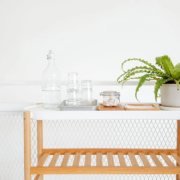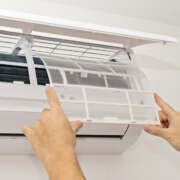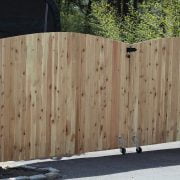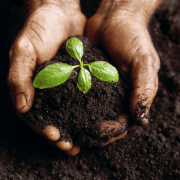Composting is the all-natural process of recycling food and other organic waste into valuable soil-enriching fertilizer.
Anything and everything that grows eventually decomposes. Composting speeds that process up by providing an ideal environment for the decomposing organisms to grow and do their work.
The resultant “dark gold” is rich in nutrients and can be used for gardening, horticulture, and agriculture. Here is a guide on what to compost out of all the natural waste products around you.
Compost provides a range of environmental benefits, including improving soil health, reducing greenhouse gas emissions, recycling nutrients, and mitigating droughts’ impact.
This practice is like giving life to your soil, but composting is vital and beneficial even if one does not have a garden. Returning the organic waste to the earth ensures a mineral and nutrient cycle and balance, which is essential for our survival in this age of overconsumption and little conservation.
Moreover, composting is a great way to eliminate leftover food, plant material, and other biodegradable items that would otherwise have to be taken away to a landfill site or disposed of by refuse collectors.
About twenty to fifty percent of your household waste stream can be taken care of via composting but knowing what can be safely thrown into the compost pit and what should stay out of it can be confusing.
When composting, it is essential to remember and maintain the proper balance of ingredients. Most composting experts advise a balance between green waste or watery materials like fruits and vegetables, grass clippings, and weeds and brown waste like dried leaves, sticks, fur, cloth, cardboard, and paper.
To help you get started with a compost heap and make this as easy as can be, we have prepared this list of more than forty things you can compost and the few things you should never add to your compost bin.
So, the next time you find yourself wondering what to compost and what not to compost, this article will be right here, waiting to be your guide as you continue to educate yourself and make this world a little greener and cleaner.
What to Compost
From your Kitchen

Kitchen composting can be as straightforward or as complex as you want. Composting requires a warm and moist place where you can turn the pile. It would not be far from the truth if we say that all you need is a shovel and a patch of dirt to start composting your kitchen waste.
Your kitchen can make a significant contribution to your compost heap. Rather than going down the drain or into the trash can, the food waste can make an excellent addition to your compost.
- Vegetables – fresh, cooked, frozen, or moldy, they can all be composted.
- Grains– in the form of bread, oats, cereals, or any grains in any condition can be out in the compost heap.
- Coffee grounds add nitrogen, and tea is fine too. They can be tossed in along with their bags (unbleached filters and staple less bags).
- Paper napkins make a great addition to compost piles and should not be thrown away.
- Unbleached recyclable paper plates and cups are good too but make sure it is all chlorine-free.
- Old spices– those dry old questionable amounts of spices lying around in kitchens can be dumped into your compost pit without worry.
- Dry or stale herbs are useful additions to the compost pile too.
- Popcorn– be it popped, unpropped, salted, buttered, or prepared any way they should be tossed in the compost rather than in the trash can.
- Dirt and dust– the dust in homes is mostly organic matter and can be decomposed in a compost pit without worry.
- Freezer burnt food like fruits and vegetables, especially soft ones, can be taken to the compost bin as is and decomposed in the composter.
- Prepared food excluding meats and dairy can be composted but can make the odor and handling the heap difficult.
- Spoiled plant-based milk like soy, rice, oat, almond, or coconut can be added to the compost.
- Unwaxed pizza boxes and paper take out bags can be ripped and added to the compost pile.
- Sour sauce and chips can also be collected and put in the composter, but moderation is vital not to affect the pH too much.
- Stale candy and energy bars add to the waste. Instead of throwing it out, add it to the compost pit the next time you find yourself wondering what to compost.
- Wine corks, toothpicks, bamboo skewers, and paper muffin cups can be chopped or torn and composted.
- Fruit pits and avocado pits can be chopped to not sprout and add to the compost heap.
- Nutshells, eggshells, corn cobs, and any organic matter can be composted, but it can take time for them to break down.
- Old jelly, jams, or preserves can be added to the compost pit.
- Melted ice cream can be composted but in moderation.
From your Bathroom

Bathroom products contribute a lot to the household’s waste stream but curbing the consumption of those products is easier said than done. But what can we compost out of all those items? Worry not! This list will help you figure out what to compost and help you reduce your carbon footprint in the easiest way possible.
- Used Facial Tissues, the paper or cotton tissues that end up in your trashcan can be easily added to your compost pit instead.
- Hair and beard trimmings, along with nail clippings, can be collected and dumped in the compost pile instead of the dustbin.
- Toilet paper rolls and paper towel rolls can be shredded and then composted.
- Natural loofahs can be cut up and added to the compost.
- One hundred percent cotton balls and cardboard sticks can be put into the composter without worry.
- Natural lambskin and 100% of latex condoms are compostable.
- Cotton tampons and sanitary pads, whether used or unused, can be added to the compost pit.
- Cardboard tampon applicators are useful additions to the compost pit if you want to cut down on your trash volume.
- Menstrual blood can be composted naturally!
- Urine can be composted in a standard compost pit, unlike feces, which requires more stringent conditions.
From the Office

A lot of waste is generated in a typical office, and a lot of the daily waste generated there can generally be composted. Let us discuss what to compost at the office!
- Bills and other paper documents can be shredded and added to the composter.
- Letters and envelopes, minus the plastic windows, can be collected and torn before being added to the compost pile.
- Pencil shavings can be added to the compost instead of the trash can.
- Sticky notes and post-its often end up in the trash every day or every week. Instead of adding to the garbage, dump these in the compost pit!
- Old business cards and other non-glossy paper can be recycled or composted easily.
- Coffee bags, especially ones made of burlap, can be added to the compost pile instead of thrown out.
Around the House

Many of the things we use and find around the house usually end up in landfills and other junkyards, which adds to the land pollution! We often want to be greener but want to avoid mistakes while we attempt composting, and that is important. So, this list will help you figure out what to compost around the house!
- Dryer Lint can be collected and added to the compost bin without worry as part of the dry brown waste.
- Old cotton clothing and towel materials can be cut up and composted instead of chucked in the trash.
- Old woolen articles can be cut up into small pieces before being composted easily.
- Dust bunnies and couch crumbs can be collected and put in the compost pile.
- Old newspapers, junk mail, and magazines should be shredded and added to the compost pit instead of the landfill.
- Dead houseplants, flowers from flower arrangements, and natural potpourri can be composted easily.
- Old twine ropes that are unwaxed can be added to the compost pit.
- Smashed jack o lanterns should not end up in landfills and should instead be used as compost ingredients.
- Chopped up Christmas tree cuttings and natural holiday wreaths should not be thrown away this holiday season and should instead be put in the compost bin!
- Pet hair and droppings from non-meat-eating animals can be added to the compost bin without worry.
Everything we can do to keep compostable materials out of the landfill will help prevent pollution and restore our depleted soils.
While we can technically compost any organic matter, we should be careful with what we do compost. So, when in doubt, it is better to check this list or leave it out rather than dealing with the possible problems that may occur otherwise.
To help you avoid the headache of the smelly, slimy, or downright dangerous consequences of composting the wrong things, we have made a list of a few things that you should not compost at home!
What NOT to Compost
- Cooking oil– Never try to compost cooking oil! It will not decompose and will pollute the soil.
- Diseased plants should not be composted as this can cause the soil to become contaminated.
- Meat and dairy should not be composted at home because they require special conditions and proper containers and a long time to decompose.
- When added to compost, synthetic fertilizers can cause pollution and heavy metal toxicity in the soil as the inorganic salts might leach into the soil.
- Treated wood dust or coal fire ash from barbeques contains chemicals that are not good for the soil.
With this, we come to the end of our list of what to compost and what not to compost. Composting can be as easy as a small ditch in your backyard or a compost bin or as specialized and complex as you want.
It is essential to recognize the efficiency and requirements when starting composting on our own. This list hopes to guide you and make the process as smooth and painless as possible.
We conclude this article made for the convenience of future composting enthusiasts and people who care about the environment. If you know anyone in need of composting help refer them to this article and have fun making the planet a little, cleaner, and greener!














Comments